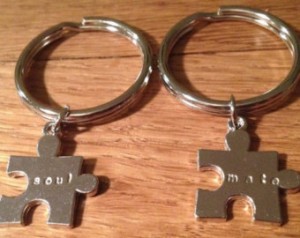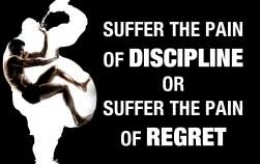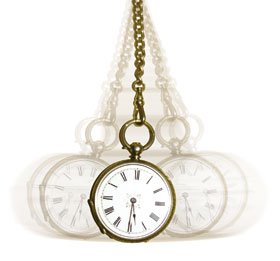 Part 1: The Question
Part 1: The Question
I just got off a call with my friend, Alex. This call was about starting a business that can make money for me… I asked him to coach me about 10 days ago, and we’ve spoken already a few times.
I am not paying him with money: money comes and goes. Instead I pay him with a currency that will pay him dividends over and over: I ask him to do what he is helping me to do: start a business that can make money for him for a long time.
He is making a living, but building a business is more than just making a living: it is exciting.
So today’s call was a brainstorming question about his business to decide what kind of business he wants to build.
I was full of questions that I didn’t think of asking myself. Some questions were old, like:
- What kind of people do you want to have as your customers?
- Would you pick people you have nothing in common with, that you would not want to be friends with?
- Would people skimp on food to buy your product?
- If there came a recession, would your product be in demand?
But there was a brand new question that shook me to my core:
If you didn’t have a family to take care of, no one who tells you that family is most important, that providing them is most important, what business would you pick? What would you do that you would be willing to go hungry for, for a long time, while you are building it?
It’s a jarring question for most. Because the current culture places family above all. Love and belonging is the highest priority. Even contemplating a question outside of that is confronting.
I see the results of people never contemplating that question, the end results: hopeless, empty, purposeless, a life lived without fulfillment, without Self. The Soul withers and dies.
Part 2: Inquiry
I woke up this morning and asked a question: would it be all right for me to die today? Would I regret the choices I have made? And where would I like to die?
I have recommended to people to ask that question, but people don’t like to think, and they don’t like to think about death. But…
 Death is a great line of demarcation… preparing for death you can see a lot about your life
Death is a great line of demarcation… preparing for death you can see a lot about your life
In 90-95% of my life I’ve chosen to follow my own passion and purpose over relationships or what other people wanted me to do. I am really happy about that. I must be a Martian for you, but for me YOU are the Martian.
I have lived my life like a seed fallen on rocky ground: I refused to give up, and I have grown into a real tree. I am really proud of that. I am able to stand on my own, make my own decisions, even the time of my own death.
No have to’s, other than my inner urges, the nudges of my Soul.
The Soul’s work for this lifetime
Kabbalah says that when your Soul’s work for this lifetime is done, you are ready to go because your work is done for this lifetime. If you fulfilled on the entire Soul Correction, then you are not coming back to do it again. (Much like in the movie: Defending your Life)
I was at that place 10 years ago. I was at a marketing conference in Washington D.C. As I was getting ready for bed in the evening, it dawned on me that my soul’s work was done… and that I was going to die that night… unless.
Unless I negotiate an extension of term by upping the ante… 1 by committing to a bigger game. I didn’t know what a bigger game would look like, but I talked to my Soul and I committed to a bigger game. A bigger game of the Soul, to do the work of another lifetime.
I woke up the next morning, energized, with a new lease on life… it felt real.
And I am now at the end of that lease… I have another choice to make: am I willing to commit to another lifetime worth of Soul work?
I have a few students, really few, that have made this choice for themselves. I am inspired by them and their choice. But there is no challenge there for me, so staying for their sake is not Soul’s work, not for my Soul.
There is a long running British TV series, Doctor Who, that has a character I can identify with, The Doctor. He is 900 years old, and can’t die because his body regenerates when he is wounded.
His story, his life is an allegory 2 for the rebirth of the Soul, with the big difference that he remembers and is burdened by all the memories, while in reincarnation mostly the carriers of the Soul (the human) don’t remember the past. 3
He, The Doctor has work to do: save the world from itself.
In one episode he goes “undercover”: he temporarily becomes a human, having locked his real Self, his Soul, into a locket. His companion is the only person who ties him to his real Self, who can restore him to himself.
While undercover, he meets a woman, a nurse, and falls in love.
When his undercover task is done, it is time to come back to his real Self, but he bristles, he grieves, he wants to stay human… His companion makes sure he doesn’t: the world needs him. The woman, his love, refuses to love him any more.
He is more lonely than ever.
What part of him wanted to stay in the small life? Surely it wasn’t the Soul…
The question I asked my friend was, again,
If you didn’t have a family to take care of, no one who tells you that family is most important, that providing them is most important, what business would you pick? What would you do that you would be willing to go hungry for, go without (without love, without comfort) for a long time, while you are building it?
For Doctor Who, the answer was to be his 900 year old immortal self again, fighting the battles against the enemies of Life.
 A new lease on life?
A new lease on life?
For me, having failed making a dent in the culture of human beings, the question is: does it make any sense to try and try again?
Or could it be that the people I have been talking to, the people I have been working with, are the part of humanity that values belonging higher than the Soul’s calling?
Does humanity have enough people who want to answer the call of the Soul for me to be worth committing to another 10-year lease on life?
- start playing a bigger game.
up the ante and raise the ante
1. Fig. to raise the opening stakes in a betting game. Pete upped the ante on that the poker game to $100 per hand. Don’t up the ante any more. You’re betting far too much money already.
2. Fig. to increase a price. (Fig. on 2.) Sensing how keen the people looking at the house were, Jerry upped the ante another $5,000. “Don’t try to up the ante on us,” said the man, “We know what the asking price is.”McGraw-Hill Dictionary of American Idioms and Phrasal Verbs. © 2002 by The McGraw-Hill Companies, Inc.
up the ante also raise the ante
1. to raise the cost or risk of an activity By adding new inspectors, the customs service is upping the ante for smugglers.
2. to increase the quality of something Foxx says he intends to up the ante in nightclub entertainment by introducing new, extremely talented performers.
Related vocabulary: raise the stakes
Etymology: based on the literal meaning of up the ante (to increase the amount of money each person must risk in a card game or other activity involving the risk of losing money)
p - al·le·go·ry
?al??gôr?/
noun
noun: allegory; plural noun: allegoriesa story, poem, or picture that can be interpreted to reveal a hidden meaning, typically a moral or political one.
“Pilgrim’s Progress is an allegory of the spiritual journey”
synonyms: parable, analogy, metaphor, symbol, emblem More - Any past life memory is like the memories that come out under hypnosis: can’t be validated… can be the product of overactive imagination. Even the individual who says he remembers can’t be sure… leading to the impostor syndrome… don’t go there. Akashic records, smakashic records: a bunch of b.s. probably
